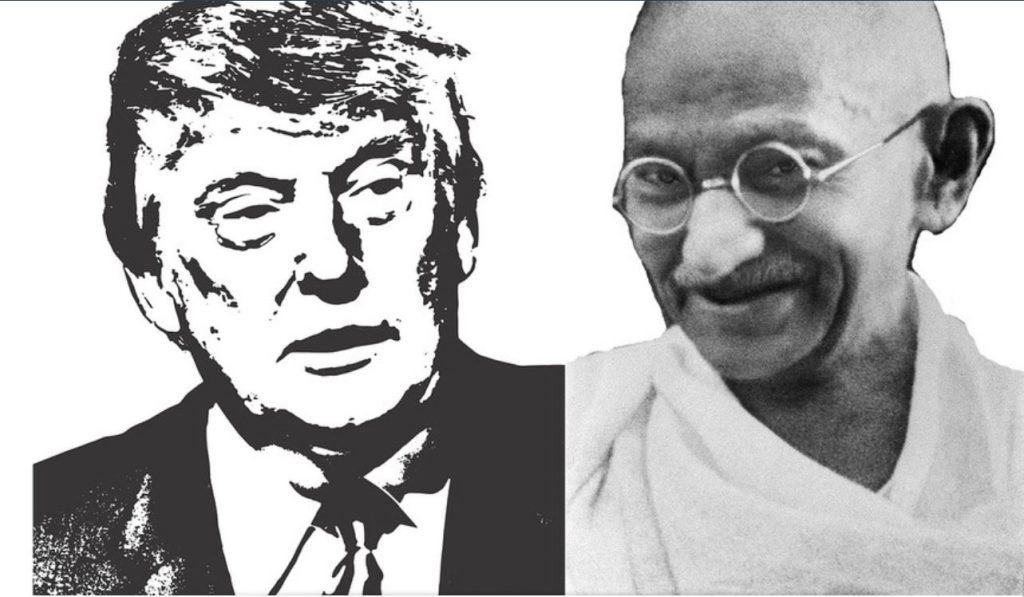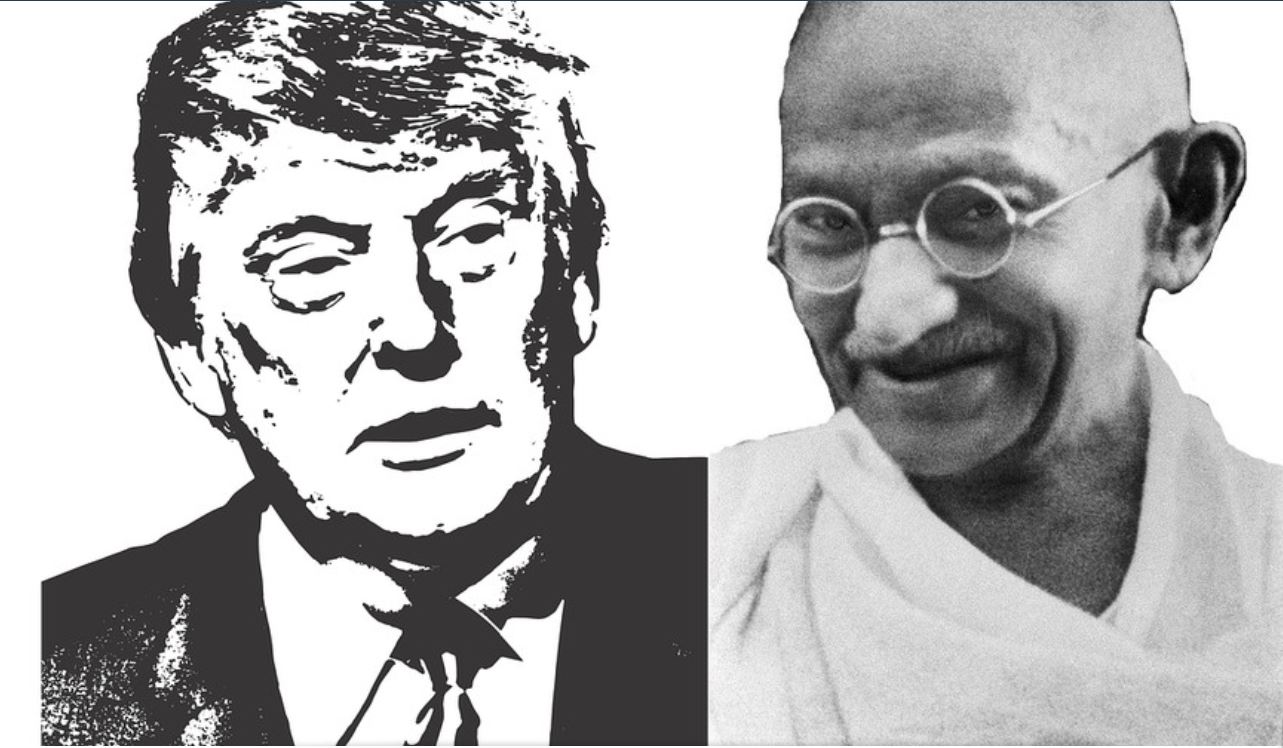
As discussion on President Trumps Trade deficit reduction and Made in America grow, one cannot but make some comparisons to one of the strongest facets of Gandhi’s anti-colonization revolution. Swadeshi.
President Trump has recently pronounced the levy of taxes on certain commodities (steel, aluminum etc.) amongst other things to minimize the trade deficit and to encourage sales of local goods. This has taken the establishment by storm (something I appreciate Mr. Trump of doing over and over again). So much so that he adroitly shifted attention from the gun laws, killing of innocent kids, fear of attending schools and fights with the NRA to what’s most important for people (well at least the media).. .money!
Nothing wrong in reducing the deficit. But he’s definitely not the first in proposing bringing manufacturing back. I would like to take a more traditional and deeper look at this, based on Gandhi’s strategies for decolonizing India. And how this veil (hopefully) of reducing deficit could have far reaching consequences.
Swadeshi – literally meaning Made in my own country, was a means Gandhi used to encourage people to boycott articles that were made outside the country. Well, that’s how it is presented in the educational systems today. However what Gandhi wanted to do was much more sinister (or should I say practical, sustainable, .. human). Indeed the revolution based on the traditional teachings of Vedic India were simple yet far reaching. That a civilized economy cannot sustain without being ultra-local. Country to Gandhi meant a village, where everyone knows everyone else… personally. This allows a moral, religious, spiritual, human touch to all trade and commerce. Sustenance requires a proper amalgamation of these.
Why? Because there is a sense of personalism, direct connection to the trade or product. Without this personalism, business is disconnected from any higher purpose except the generation of more and more revenue. And that leads to the downfall of every large or small economy.
In the well acclaimed book “Economy of Permanence”, by J. C. Kumarappa and a contemporary of Gandhi (known as the doctor of the village industry) this thought is delineated.
“.. economics has been divorced from moral considerations on the plea of business being business”
The economy that has the highest chance of greatness, of survival is that which is based on service. And service done without knowing the personal needs of those that are served becomes predatory… just business. This requires the served and the server (the customer and the corporation) to be united culturally, socially, morally. Now the problems of the customer and corporation become common as the locality increases. Needs are felt, not just recognized. Solutions and products and trade finds a heart.. and the economy thrives.
Which brings us back to the trade deficit. Trumps wanting to bring manufacturing closer to its demand, is essentially this same paradigm (at least a step in that direction). Its not just about the jobs that are created, but hopefully this evolves into being able to relate personally to those involved in manufacturing our products and vice versa. The proponents of world trade and globalization are now seeing its vastly negative effects and withdrawing. We already are seeing the positive effects of eating local. Soon (hopefully) we will realize our folly of neglecting to make and trade locally… Swadeshi.
In a later blog, we will delve more into sustainable economies. There’s more to be done .. a lot more. Reducing greed of those that are producing locally is definitely very much close to the top of the list. Till then lets revel in Trumps revelation of the secrets of Gandhi’s, or should I say that of the Vedic traditions, vision.

